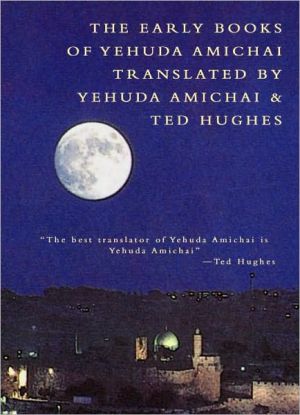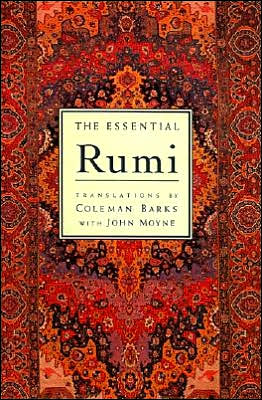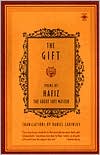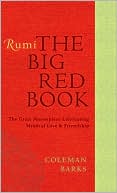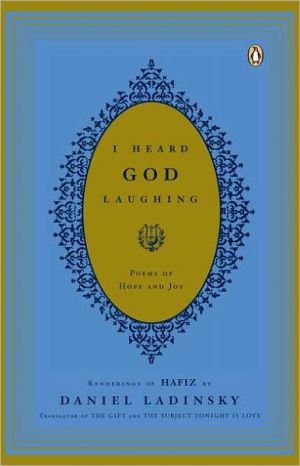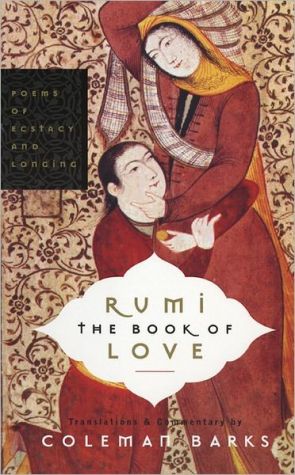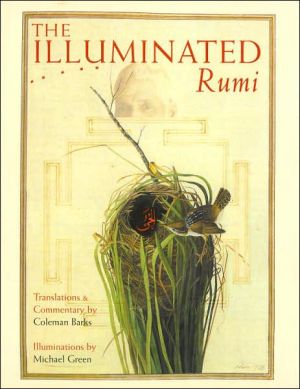The Early Books of Yehuda Amichai
The Early Books of Yehuda Amichai collects for the first time in a single volume the three works -- Songs of Jerusalem and Myself, Poems and Time -- that established Amichai as Israel's greatest contemporary poet and one of the major poets of our time.
Search in google:
The Early Books of Yehuda Amichai collects for the first time in a single volume the three works — Songs of Jerusalem and Myself, Poems and Time — that established Amichai as Israel's greatest contemporary poet and one of the major poets of our time. Publishers Weekly This English translation of the popular Israeli poet's early work serves as a fine introduction to his oeuvre. Amichai's first volumes, published in the 1950s, influenced a generation of poetsparticularly in the contrasts that he created between the modern Hebrew of daily speech and the classical Hebrew of the holy texts: "To speak, now, in this tired language / torn from its sleep in the Bible / blinded, it lurches from mouth to mouth / the language which described God and the Miracles, / says: / motor car, bomb, God.'' Amichai keenly evinces the poet's function as observer and social critic: "Out of three or four in a room / one is always standing at the window. / Forced to see the injustice among the thorns, / the fires on the hill.'' The life of the poet's father and the bitter experiences of war are coupled in a chronicling of the ironies of the Israeli experience. "My Father Fought Their War for Four Years'' addresses the fact that although Israel was envisioned as a haven for the Jews, its people are often embattled. And in the long cycle of love verses, "Achziv Poems,'' Amichai characteristically weds the sacred and the sexual. (Nov.)
King Saul and I Ibn Gabirol The Place Where I Have Not Been Out of Three or Four in a Room If With a Bitter Mouth In My Time, in Your Place In My Worst Dreams Farewell, You A Pity. We Were Such a Good Invention It Was Summer, or the End of Summer Two Songs on Caesarea Beach Like Our Bodies' Imprint God Has Pity on Kindergarten Children Two Quatrains Eye Examination In the Middle of This Century Poem in an Orange Grove I Was the Moon As for the World She Knows Tourist God's Fate My Mother Once Told Me My Parents' Migration To Summon Witnesses The End of Elul Quick and Bitter Luxury Two Songs of Peace My Child Song of Resignation To My Mother Mayor My Father Fought Their War for Four Years The United Nations' Command in Jerusalem You Also Were So Tired Two Bedouin Songs Indian Summer in Princeton The Heart Is a Corrupt Dictator National Thoughts If I Forget Thee, Jerusalem Rain on a Battlefield The First Battles High-Heeled Shoes They Call Me It's a Long Time Since Anybody's Asked Time
\ From the PublisherHe is one of our great poets ... Once one has heard his quiet, even tones, precise, distanced and passionate, one can never forget them.--The Times Literary Supplement\ \ \ \ \ Publishers Weekly - Publisher's Weekly\ This English translation of the popular Israeli poet's early work serves as a fine introduction to his oeuvre. Amichai's first volumes, published in the 1950s, influenced a generation of poetsparticularly in the contrasts that he created between the modern Hebrew of daily speech and the classical Hebrew of the holy texts: "To speak, now, in this tired language / torn from its sleep in the Bible / blinded, it lurches from mouth to mouth / the language which described God and the Miracles, / says: / motor car, bomb, God.'' Amichai keenly evinces the poet's function as observer and social critic: "Out of three or four in a room / one is always standing at the window. / Forced to see the injustice among the thorns, / the fires on the hill.'' The life of the poet's father and the bitter experiences of war are coupled in a chronicling of the ironies of the Israeli experience. "My Father Fought Their War for Four Years'' addresses the fact that although Israel was envisioned as a haven for the Jews, its people are often embattled. And in the long cycle of love verses, "Achziv Poems,'' Amichai characteristically weds the sacred and the sexual. (Nov.)\ \
